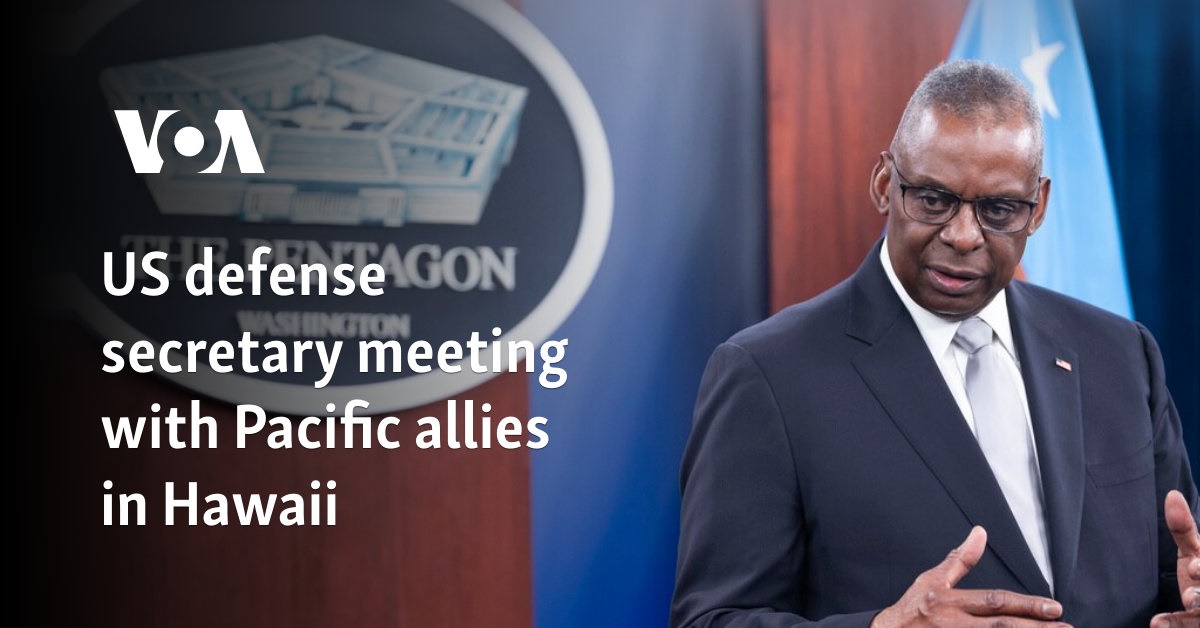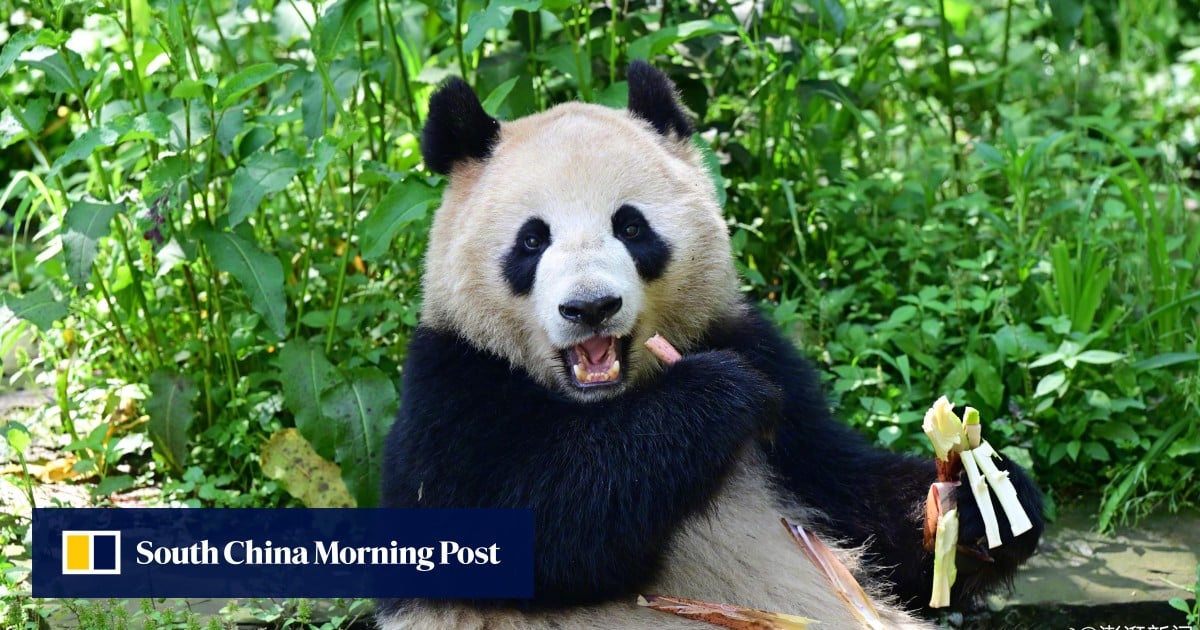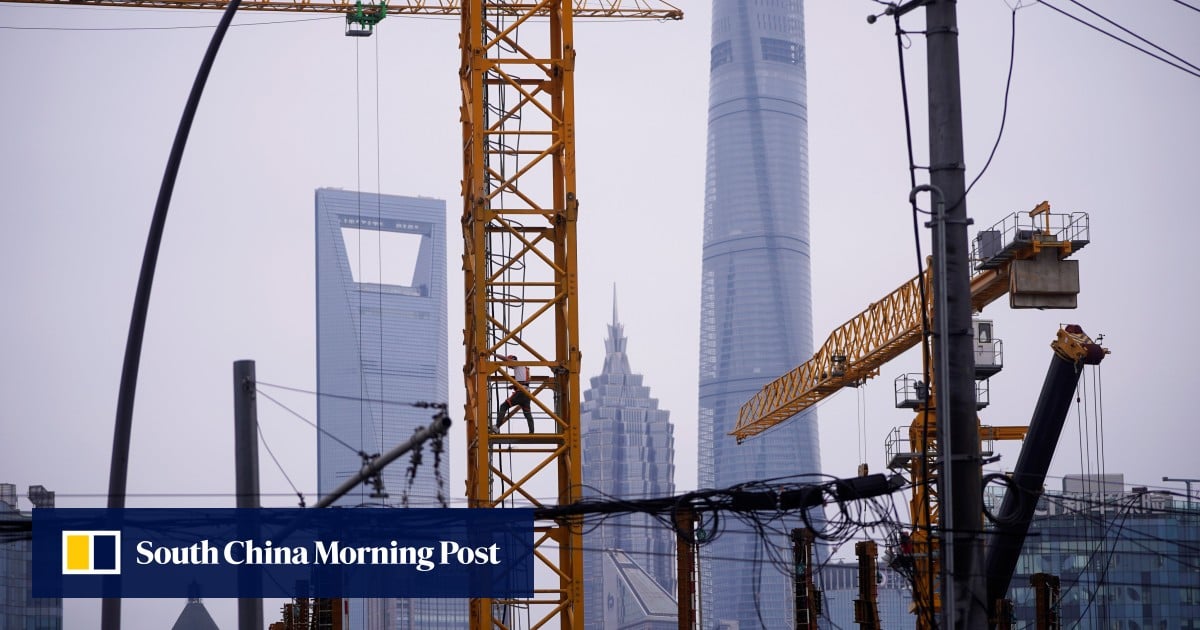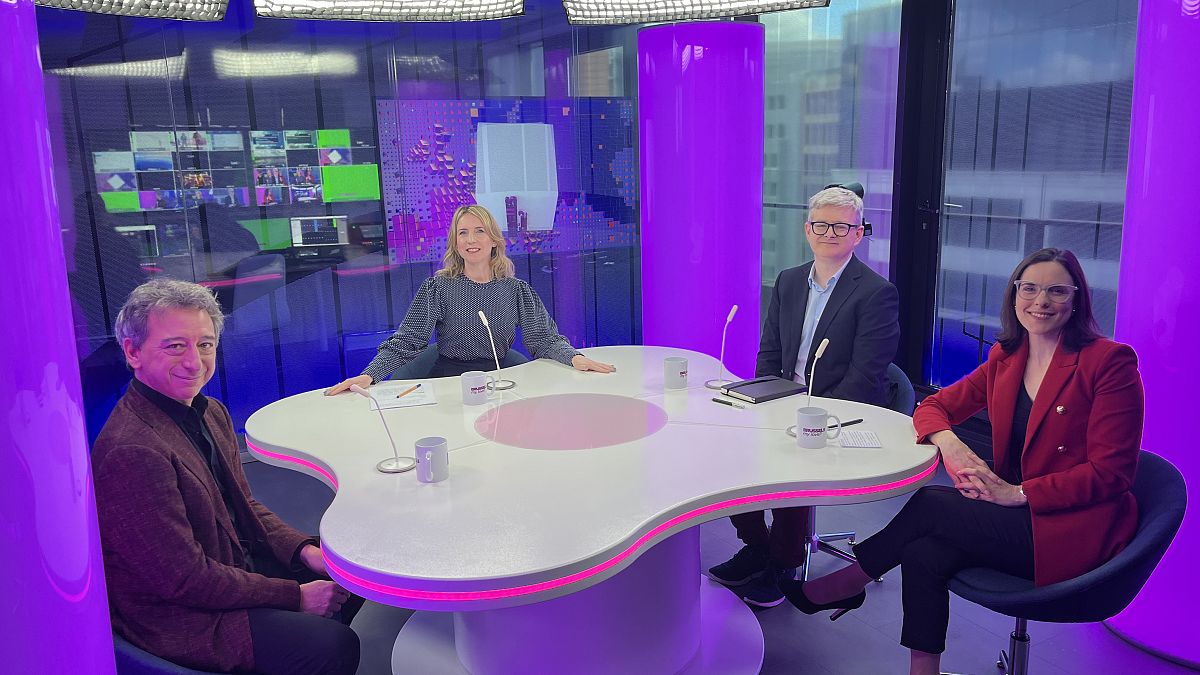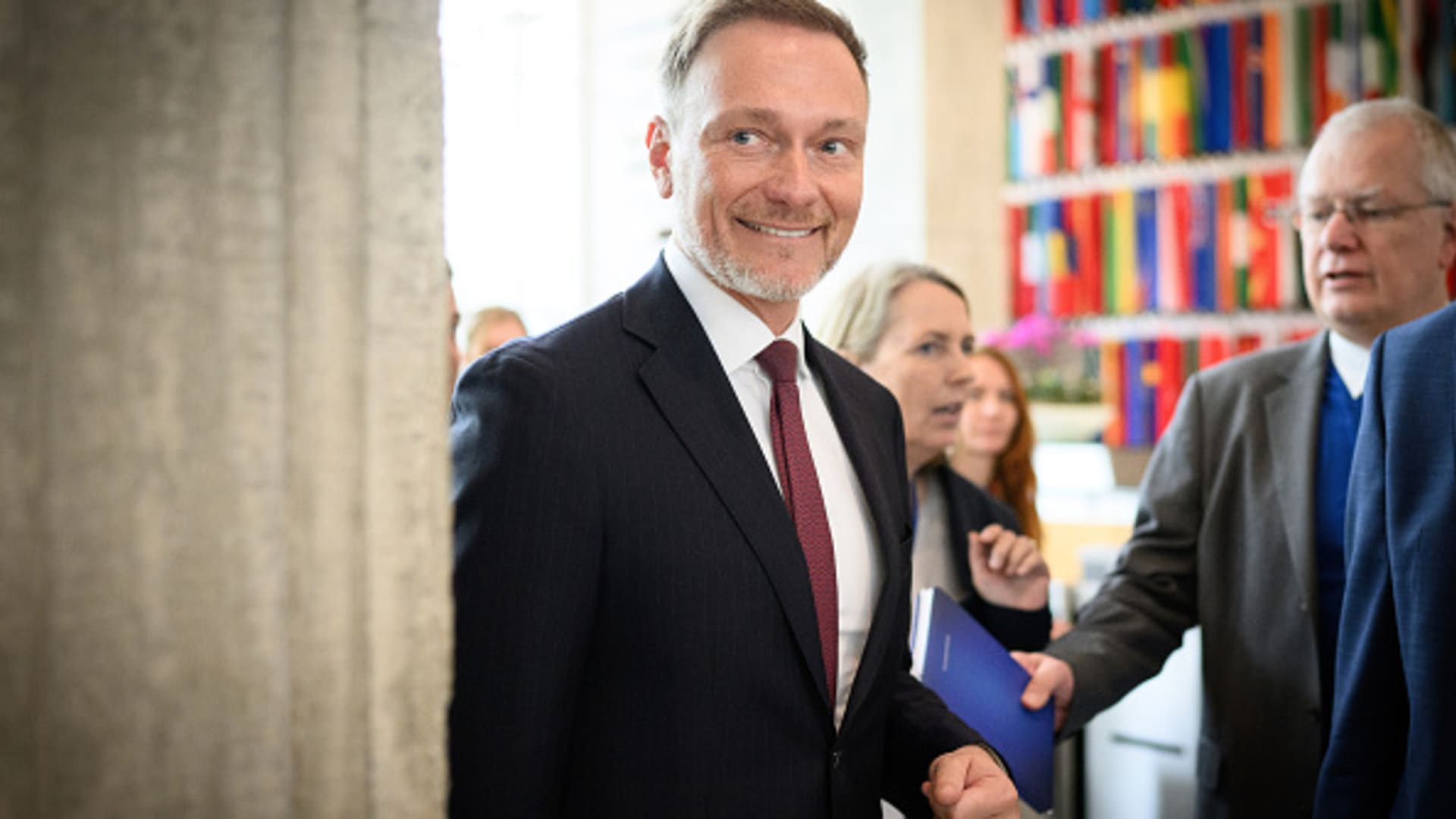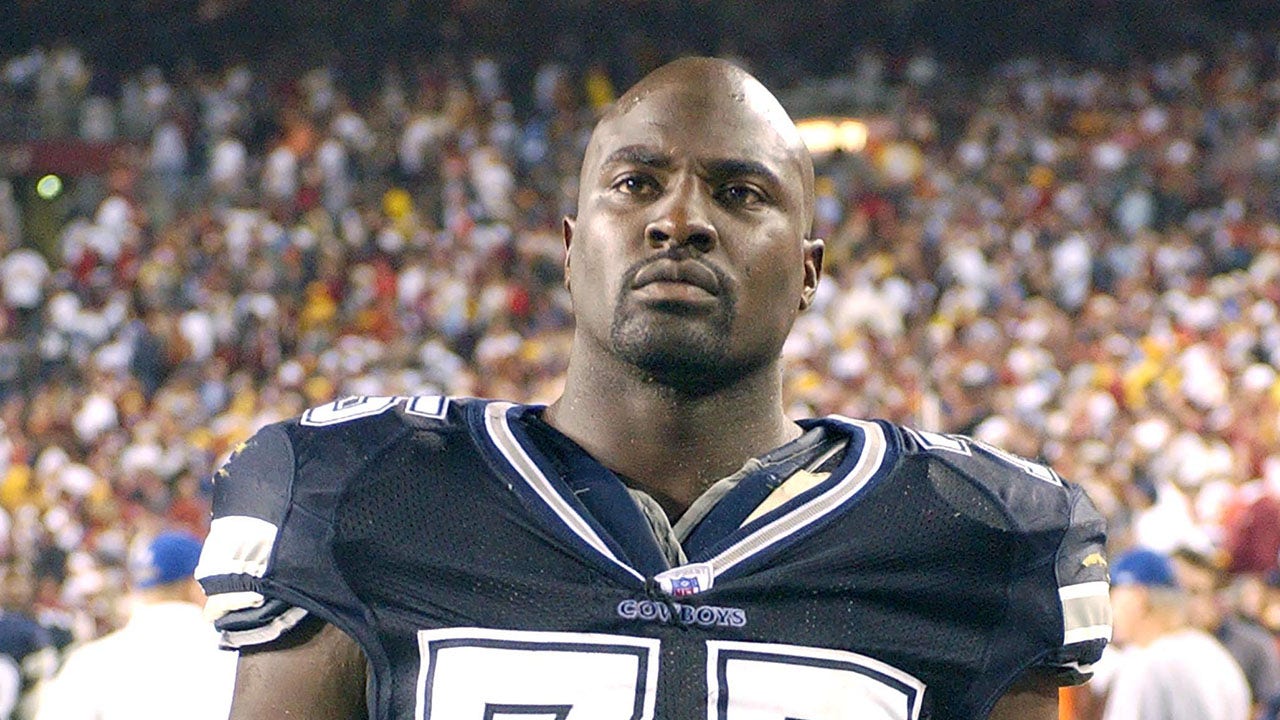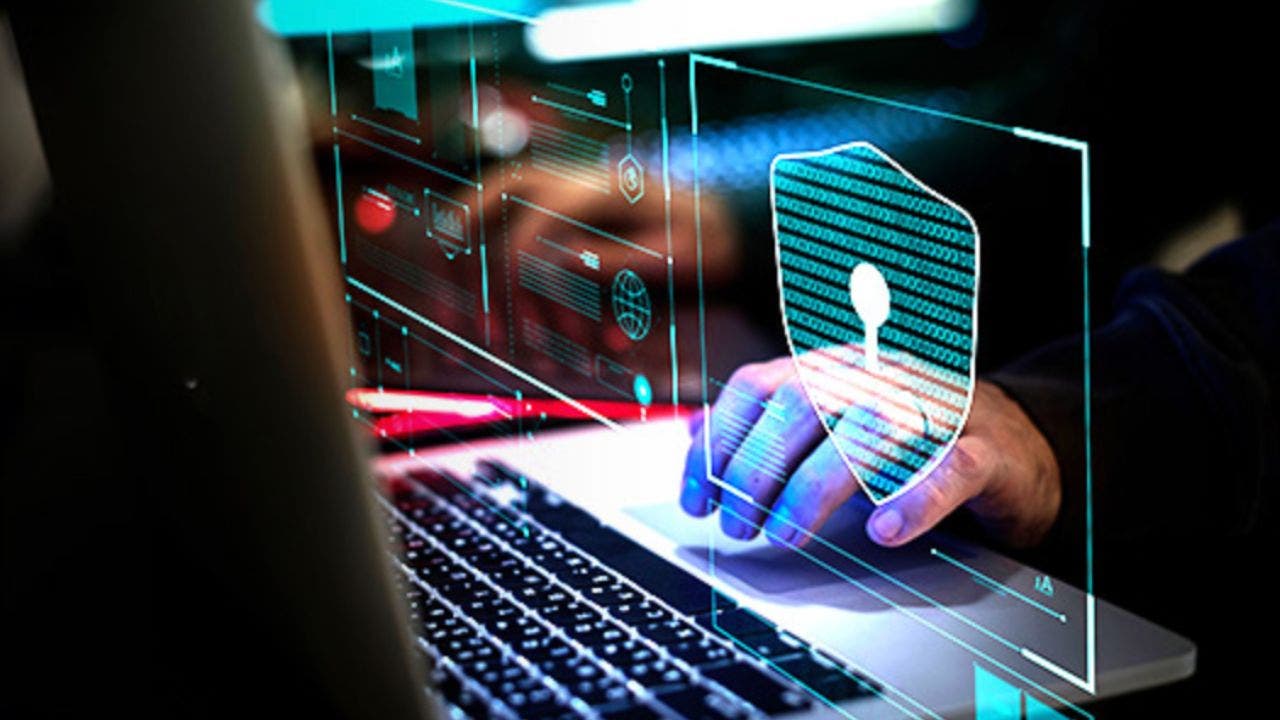World
EU warns China it will ‘not tolerate’ unfair competition at summit
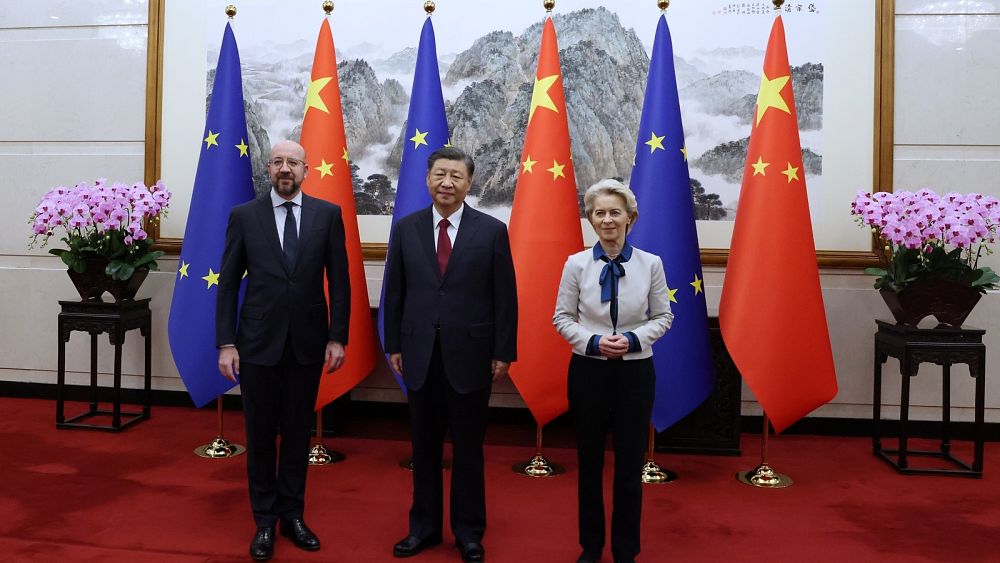
European leaders will “not be able to tolerate that our industrial base is undermined by unfair competition,” Ursula von der Leyen warned on Thursday after a highly anticipated meeting with Chinese President Xi Jinping.
“Competition needs to be fair. We insist on fair competition within the single market, therefore we also insist on fair competition from companies that come to our single market,” the European Commission president told reporters in Beijing.
Her warning came following the first in-person meeting between EU leaders and President Xi in over four years. But despite the high stakes of the summit, happening amidst heightened geopolitical tensions and an increasingly fraught trade relationship, no new commitments emerged from either side.
The EU is concerned that Beijing’s import restrictions and generous subsidies for China-based firms are putting European companies at an unfair disadvantage, inflating the bloc’s massive trade deficit with Beijing.
The Asian giant is the EU’s biggest trading partner, with trade in goods amounting to a staggering €2.3 billion every day.
But EU imports from China now exceed its exports by almost €400 billion. This deficit has grown tenfold in the past 20 years and doubled over the past two years. According to von der Leyen, “such imbalances are just unsustainable.”
“I’m glad that we agreed with President Xi that trade should be balanced between the two of us,” she added.
Discussions on redressing trade imbalances with Chinese Prime Minister Li Qiang were in-depth and delved down into the facts and figures, von der Leyen said, although no concrete measures to address the imbalances immediately emerged from the meeting.
“We expect China to take more concrete action to improve market access and the investment environment for foreign companies,” European Council President Charles Michel, also present at the meeting, said.
According to Chinese state television, Premier Li had told both EU leaders that China opposes the “politicisation” of economic and trade ties.
The EU has adopted a ‘de-risking’ approach amid fears that its entrenched reliance on China for critical materials used in cleantech applications could erode its industries and jeopardize its security.
This means using the EU’s trade and domestic defence tools, such as its ongoing anti-subsidy probe into low-cost China-made electric cars that are flooding the EU market.
Von der Leyen insisted de-risking is not “exclusive to China” and highlighted that Beijing’s so-called self-reliance strategy is similar to the EU’s plan. She also emphasised the bloc was not looking to de-couple its economy from China’s as it has done from Russia’s in the aftermath of the invasion of Ukraine.
For Grzegorz Stec, an analyst from Chinese-sanctioned think-tank MERICS, the summit may not have delivered on much, but it has set the tone for relations going forward.
“There wasn’t really that much that has come out of the summit in terms of concrete deliverables, but in terms of framing the relationship going forward, it was a very meaningful exchange,” Stec said in an interview with Euronews.
“Why I think this exchange was meaningful is that it seemed that the EU has put on the table the fact that it really wants China to engage constructively, and if not, it’s going to take action, which is, let’s say the way that it was framed was assertive, not confrontational, because the European side was also pointing out the constructive aspects of the relationship that are already there.
“But it’s very much a signal that the EU side is expecting action to happen soon. On the Chinese side, if not, then our relationship might get a little bit more complex in terms of European responses.”
He added that this action could mean many things.
“Brussels now has an increasing portfolio of tools that are being put in place under the EU’s economic security agenda and the idea of de-risking.
“So, this is a plethora of tools that are being introduced on the EU level and here we have to take a look beyond issues that are more political, such as, for example, anti-coercion instruments.
“Other issues might include more investigations like the one that we’ve seen towards EVs, towards pet products, and also a number of other issues that are being put on the table on the European side.”
Ukraine, Gaza and Taiwan on the agenda
Both von der Leyen and Michel used their trip to urge Xi to do more to crack down on sanctions circumvention, where Chinese firms are suspected of indirectly feeding the Kremlin’s war campaign in Ukraine.
The bloc suspects that everyday products – including those made in the EU – that include components needed to manufacture drones, missiles and artillery shells are being re-exported to Russia through China.
Member states have been pushing to include sanctions on Chinese companies suspected of facilitating sanctions circumvention in the EU’s 12th package of sanctions, currently under negotiation.
A senior EU official said that while the overall export of high-priority battlefield items from China to Russia has declined, the latest data suggests exports of so-called ‘dual-use goods’ that could be redirected for military purposes are on the rise.
According to Michel, the EU has identified a list of companies “suspected of playing a role in circumventing sanctions.”
Von der Leyen said that China’s position on the war in Ukraine will “also define” EU-China relations. China has taken a neutral stance on the war and proposed a 12-point peace plan for Ukraine in March this year, but has refrained from severing ties with Putin.
“It is possible that we’re going to see some response on the Chinese side in the context of specific cases of specific companies providing specific goods, while China is in the mode of re-engagement with other actors,” MERICS analyst Stec told Euronews.
“But in terms of China changing its overall position in the context of the Russian invasion of Ukraine, this I would personally say is highly unlikely given the fact that China frames and sees the Russian invasion of Ukraine through the lens of its own competition with the United States and treated as a part of a wider geopolitical outlook.”
Leaders also broached the thorny issue of the ongoing war in the Middle East and the complex path to lasting peace in the region.
“We agree that getting lifesaving aid to the most vulnerable must be a top priority,” Michel said.
The EU is the biggest donor of aid to the Palestinian territories and has quadrupled its humanitarian aid to €100 million this year in response to the crisis engulfing the Gaza Strip. China’s response fades in comparison, offering $2 million (€1.86 million) in additional humanitarian assistance since the conflict erupted in October.
A senior EU official said that the summit was an opportunity for von der Leyen and Michel to put pressure on China to scale up its humanitarian response.
The two EU leaders, who were accompanied by the bloc’s top diplomat Josep Borrell, also expressed their concerns about the tensions in the Taiwan Strait and the South China Sea.
The bloc and its Western counterparts oppose any change to the “status quo” in Taiwan, a democratically self-ruled island that China considers a breakaway province that should be reunited with the mainland.
Increased military activity in the Taiwan Strait and the precedent set by Putin in Ukraine has raised the alarm in Europe over a potential escalation in Taiwan. But the European and Chinese positions remain far apart.

World
‘It’s going to be worse’: Brazil braces for more pain amid record flooding

The death toll has climbed to 56 in Brazil’s southern Rio Grande do Sul state, with tens of thousands displaced.
Overpowering floods and mudslides caused by torrential rains are continuing to sweep southern Brazil, killing at least 56 people and forcing tens of thousands out of their homes, the government said.
As well as raising the death toll on Saturday, the country’s civil defence agency said rising water levels in the state of Rio Grande do Sul were straining dams and threatening the metropolis of Porto Alegre.
Triggered by storms that began on Monday, the flooding is only expected to get worse, local authorities said, as rescuers scoured the ruins of washed-out homes, bridges, and roads for missing people.
“Forget everything you’ve seen, it’s going to be much worse in the metropolitan region,” Governor Eduardo Leite said on Friday as the state’s streets were submerged.
‘Nothing could be saved’
The flooding, Brazil’s worst in 80 years, has so far affected at least 265 municipalities in Rio Grande do Sul, according to the southernmost state’s civil defence department.
It has injured at least 74 people, displaced more than 24,000, and left 350,000 with some form of property damage.
“Nothing could be saved,” said Claudio Almiro, who lost his home and possessions to the flooding.
“Many people have even lost their lives. I raise my hand to heaven and thank God that I’m alive.”
Residents in several cities and towns have been left completely cut off from the world, with no electricity or telephone access, while others have been forced to abandon their livestock.
“You don’t know if the water will continue to rise or what will happen to the animals, they may soon drown,” said Raul Metzel, from Capela de Santana, north of the state’s capital.
Five days in, as the rainfall shows no signs of letting up, four of the state’s dams are at risk of collapsing, creating the risk of a new “emergency situation”, according to civil defence officials.
Brazil’s federal government has sent aircraft, boats and more than 600 soldiers to help clear roads, distribute food, water and mattresses, and set up shelters, while local volunteers have also helped with search efforts.

‘Disastrous cocktail’
Climatologist Francisco Eliseu Aquino said the devastating storms were the result of a “disastrous cocktail” of global warming and the El Nino weather phenomenon.
South America’s largest country has recently experienced a string of extreme weather events, including a cyclone in September that killed at least 31 people.
Aquino said the region’s particular geography meant it was often confronted by the effects of tropical and polar air masses colliding – but these events have “intensified due to climate change”.
And when they coincide with El Nino, a periodic warming of the waters in the tropical Pacific, the atmosphere becomes more unstable, he said.
World
'Show solidarity': Pro-Palestinian protesters camp across Australian universities

World
China increases aggressive moves against Taiwan as island prepares to inaugurate new president
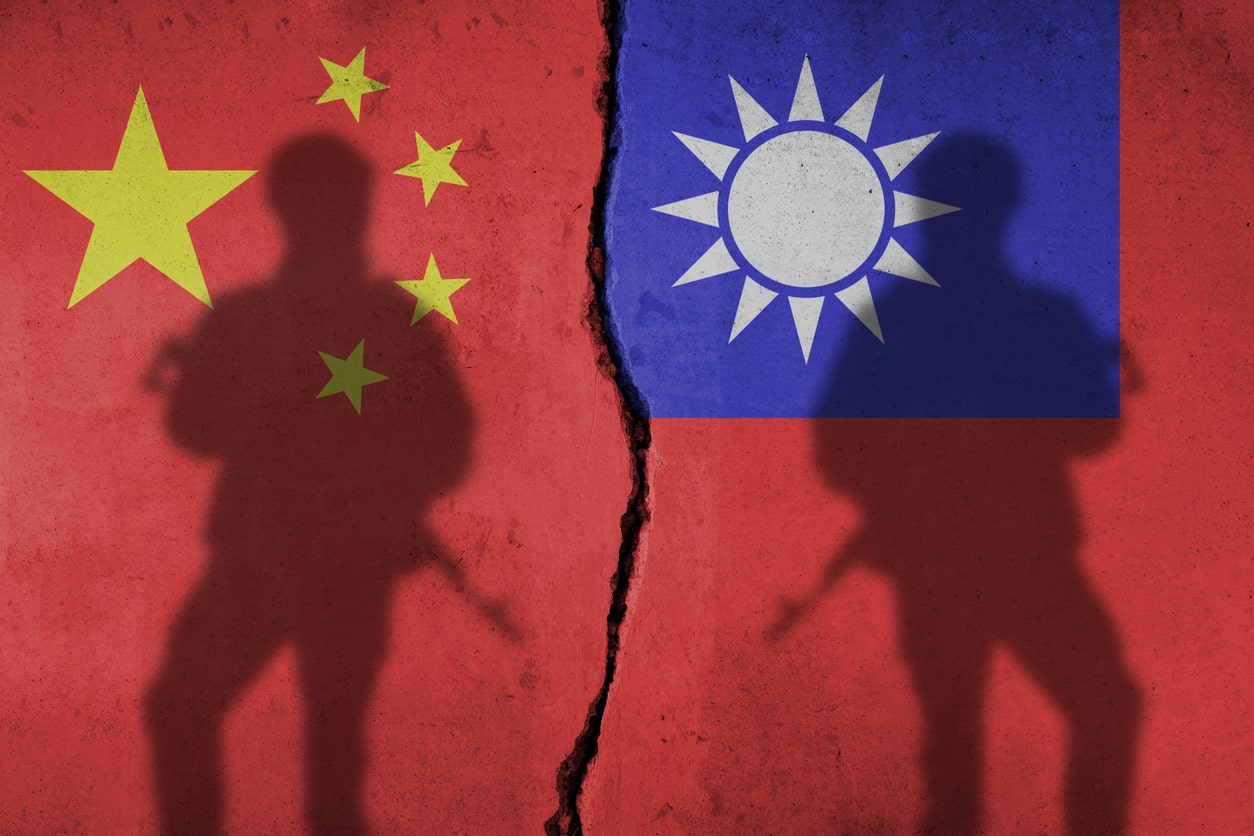
KAOHSIUNG — Virtually every day, the People’s Republic of China does something unprecedented — its coast guard briefly boarding a Taiwanese tourist boat, flying military aircraft ever closer to Taiwan or increasing harassment of Taiwanese fishing boats in the South China Sea.
“This is a problem,” says Dean Karalekas, author of “Civil-Military Relations in Taiwan: Identity and Transformation.” “Because these unprecedented actions are creating a new normal. Beijing hopes that we (the West) will sit by and watch as they take over Taiwan, just as we did when they used these same salami-slicing tactics to take over the South China Sea.”
The world began noticing more of China’s hostile actions following the visit to Taiwan by former U.S. House Speaker Nancy Pelosi in 2023, but the strategy has been in place for some time.
“China’s plan to ‘normalize’ military encroachments was planned long before Pelosi’s visit,” Taipei Times columnist and political commentator C. Donovan Smith told Fox News Digital. “The military exercises were far too complex and logistically complicated to have been planned in the short span of time between the announcement of her trip and her arrival in Taiwan.”
TAIWAN ELECTION: RULING PARTY CANDIDATE WINS TIGHTLY CONTESTED PRESIDENTIAL RACE, UPSETTING CHINA’S AMBITIONS
President-elect William Lai votes in southern Taiwan’s Tainan city Jan. 13, 2024. (AP Photo/Ng Han Guan)
Surrounding Taiwan in a mock “quarantine” and performing missile “tests” in 2023 was also intended to push Taiwanese voters toward politicians and parties more friendly to China. But, as has been the case in the last three elections here, Beijing’s ploys were ineffectual. Taiwan in January elected the incumbent vice president, William Lai, to take over from two-term President Tsai Ing-wen. Both Tsai and Lai are members of the Democratic Progressive Party (DPP).
The incoming Taiwan president has repeatedly pledged to make no changes to policies in place over the last eight years. Beijing, however, sees William Lai (Lai Ching-te) as a “splittist” and a supporter of Taiwan independence. Lai previously did voice support for independence but has tried to walk that back. China, however, does not forgive nor forget. Many political experts believe Beijing will ratchet up pressure as Lai enters office later this month.
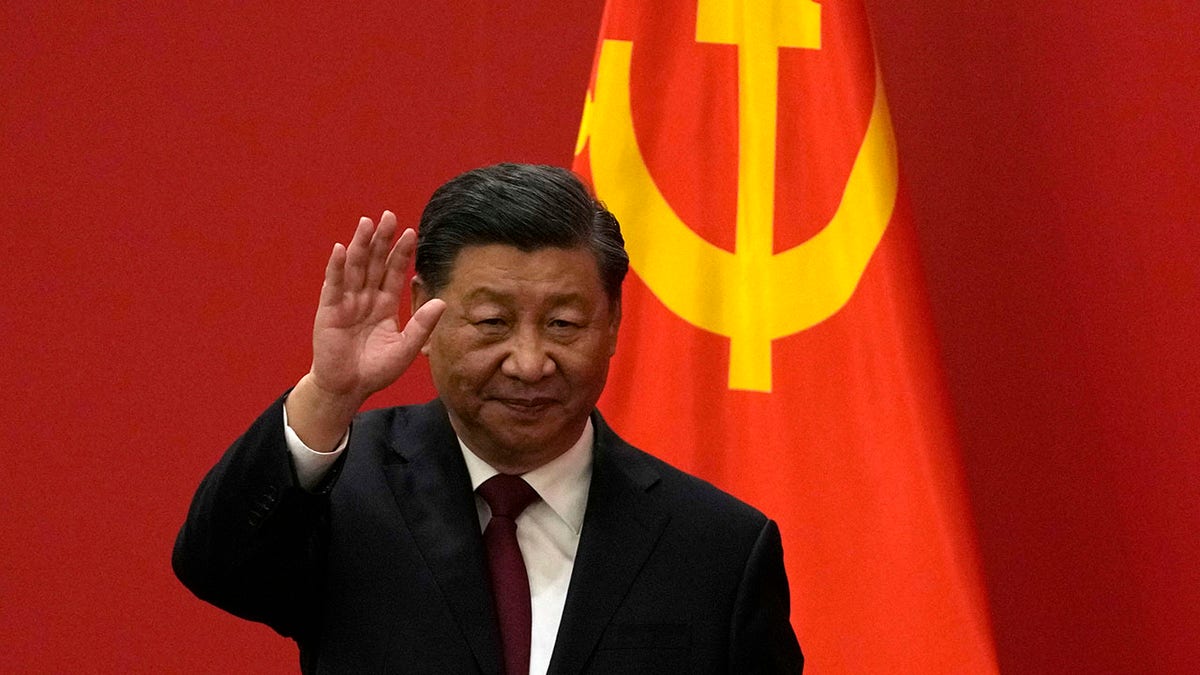
Chinese President Xi Jinping waves at an event to introduce new members of the Politburo Standing Committee at the Great Hall of the People in Beijing Oct. 23, 2022. (AP Photo/Andy Wong, File)
A recent example of China’s attempts to establish this “new normal” is changes to airspace rules. China is close to finishing a massive new airport serving Xiamen in Fujian Province. Just 6.2 miles away, however, sits the island of Kinmen, which has remained a part of the Republic of China (ROC), better known as Taiwan, since 1949.
Kinmen Airport is strategically important for Taiwan. In 2015, the two sides worked out a deal to change a flight path that was a bit too close for Taiwan’s comfort. But in February, Beijing unilaterally backed out of the deal, announcing that, from May 16, new air routes would begin operating to “further optimize airspace” around the area.
FOR CHINA’S MILITARY PLANNERS, TAIWAN IS NOT AN EASY ISLAND TO INVADE
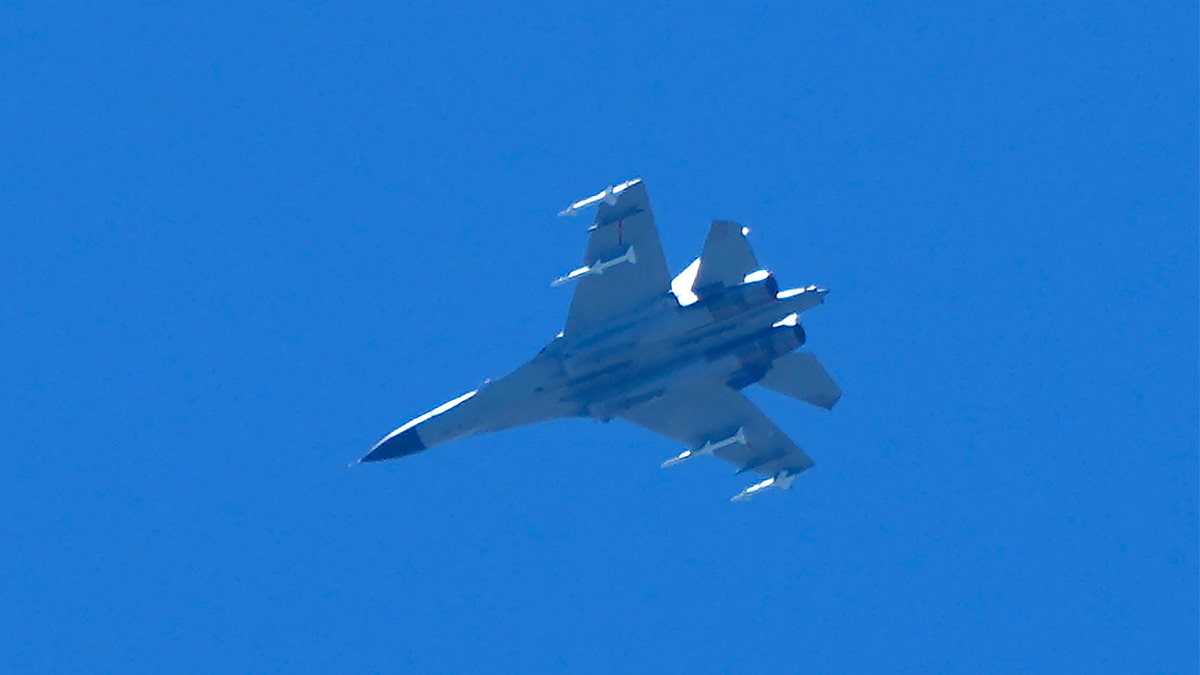
A fighter jet flies in the direction of Taiwan as seen from the 68-nautical-mile scenic spot, the closest point in mainland China to the island of Taiwan, in Pingtan in southeastern China’s Fujian Province Aug. 5, 2022. (AP Photo/Ng Han Guan)
Few China watchers think China picked the day arbitrarily, says Karalekas.
“Beijing has a pattern of testing new leaders of enemy states. They tested Bush with the EP-3E spy plane incident. They tested (then-Japanese prime minister) Naoto Kan with the Senkaku boat collision. We can expect them to test Lai by creating some sort of mini-crisis around the time he takes office on May 20.”
“I think China is really ramping up threats,” Eric Hsu told Fox News Digital. Hsu lives in southern Taiwan’s biggest city, Kaohsiung, has worked on historical restoration projects and hosts a podcast on Taiwan history.
He says he isn’t only worried about military hardware, but also what he termed, “brainwashing videos and moves by KOLs,” (Key Opinion Leaders, a term used to describe internet influencers).
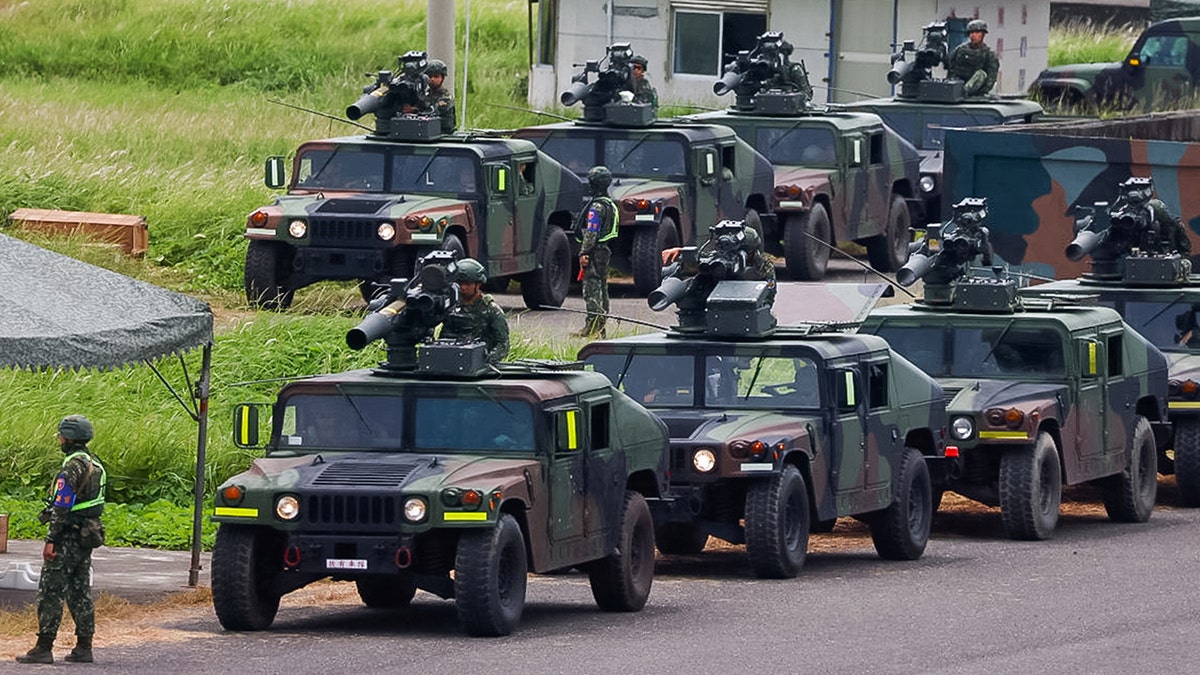
Military vehicles equipped with a U.S.-made TOW 2A missile during a live fire drill in Pingtung, Taiwan, July 3, 2023. (REUTERS/Ann Wang)
Hsu places much of the blame at the feet of local opposition parties seen by many as more friendly to Beijing. Describing the current domestic political situation, he said Taiwan faces “not just an enemy at the gate, but also enemies within.” South Taiwan is a DPP stronghold, but not everyone in the south agrees that the opposition parties are the problem.
Another resident of Kaohsiung, a self-employed businessperson and mother, Ms. Lin, thinks the DPP hasn’t been sincere in reaching out to China.
“They’ve had eight years, and now they will get at least another four,” Lin told Fox News Digital. “What Taiwan needs are brave leaders, people willing to try new solutions, and I don’t see any such people in the current DPP leadership.”
TAIWAN PRESIDENT-ELECT CHOOSES NEW FOREIGN, DEFENSE MINISTERS AS CHINA ANNEXATION THREATS INTENSIFY
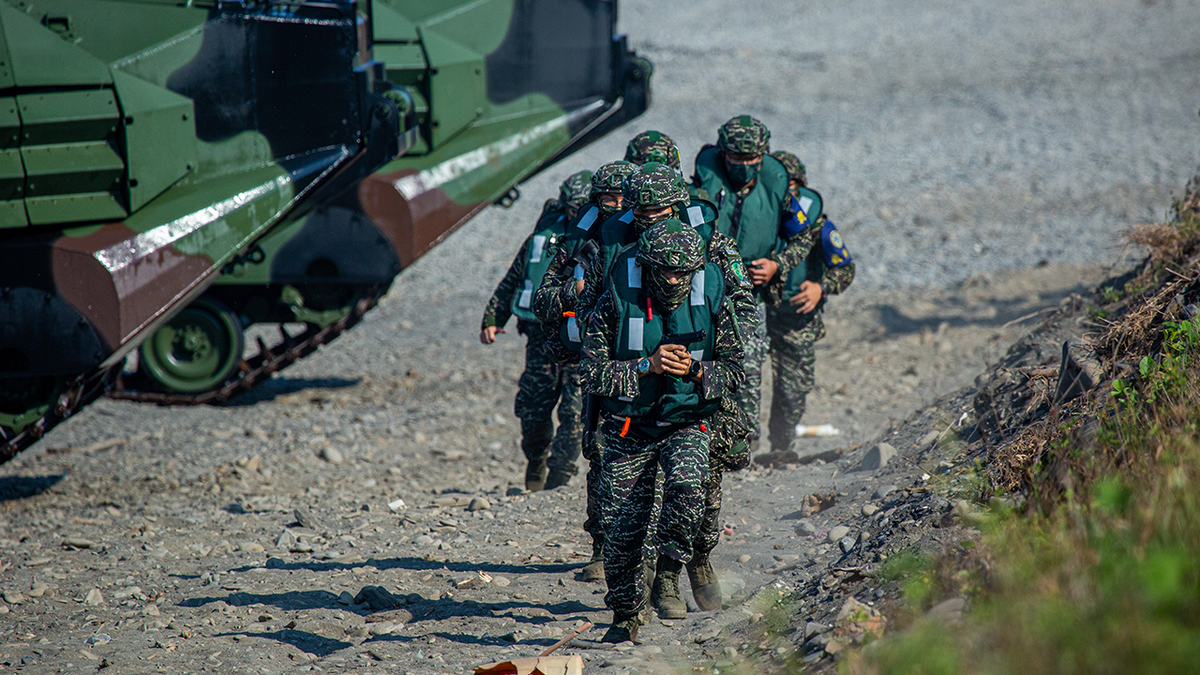
Soldiers disembark from AAV7 amphibious assault vehicles during the Han Kuang military exercise, which simulates the China’s People’s Liberation Army invading the island July 28, 2022 in Pingtung, Taiwan. (Annabelle Chih/Getty Images)
The main opposition party, the Kuomintang (KMT), denies it is “China-friendly” and instead says it is “peace-friendly.” Chinese dictator Xi Jinping has met with the KMT’s Ma Ying-jeou twice, first in Singapore in 2015 when Ma was in office as ROC (Taiwan) president. It was the first time since the end of WWII top leaders from China and Taiwan sat in the same room. Each side in 2015 chose to ignore official titles and address each other as “Mr. Xi” and “Mr. Ma.” On April 10,, “Mr. Xi” and former Taiwan president “Mr. Ma” met again, this time in Beijing.
Some experts see such meetings between the KMT and China favorably, arguing that any dialogue is good and – if nothing else – provides a way for China to save face as it continues its policy of mandatory “reunification,” which China now says may need to be achieved by force. Others in Taiwan and abroad see Ma’s meetings as straying far too close to an acceptance of the idea that Taiwan is a part of China.
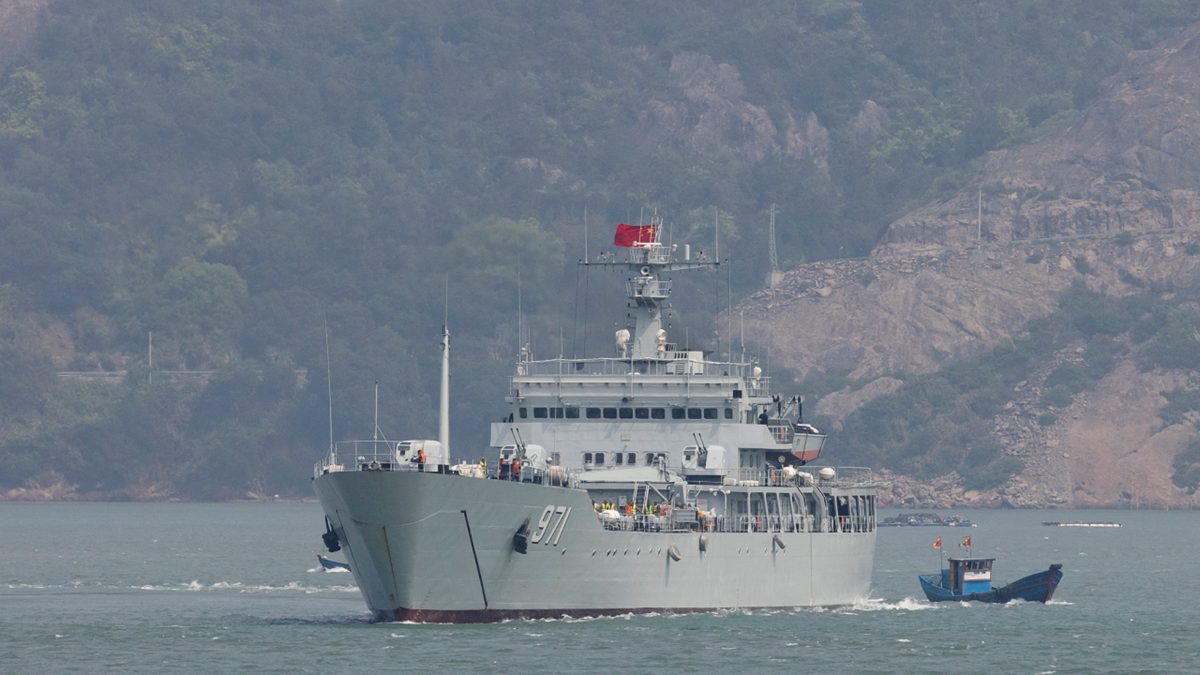
A Chinese warship sails during a military drill near the Taiwan-controlled Matsu Islands near the Chinese coast April 8. (Reuters/Thomas Peter)
As it stands, the ruling DPP says it’s content with the status quo, including keeping Taiwan’s official name, the Republic of China. The KMT is generally more in favor of talks with Beijing under a mutual respect “consensus” idea that boils down to agreeing that both sides are “China,” but each side is free to interpret what this “one China” means.
The problem with the KMT’s thinking, central Taiwan-based newspaper columnist and political commentator Michael Turton told Fox News Digital, is that “Xi’s goal is the complete subjugation of Taiwan, just like Hong Kong. Two of China’s ambassadors abroad have already indicated that Taiwanese opposed to Beijing rule will be shipped off to concentration camps. Given this goal, how can there ever be dialogue with mutual respect?”
-

 News1 week ago
News1 week agoLarry Webb’s deathbed confession solves 2000 cold case murder of Susan and Natasha Carter, 10, whose remains were found hours after he died
-

 News1 week ago
News1 week agoFirst cargo ship passes through new channel since Baltimore bridge collapse
-

 World1 week ago
World1 week agoHaiti Prime Minister Ariel Henry resigns, transitional council takes power
-

 World1 week ago
World1 week agoSpanish PM Pedro Sanchez suspends public duties to 'reflect'
-

 World1 week ago
World1 week agoUS secretly sent long-range ATACMS weapons to Ukraine
-

 News1 week ago
News1 week agoAmerican Airlines passenger alleges discrimination over use of first-class restroom
-

 Movie Reviews1 week ago
Movie Reviews1 week agoHumane (2024) – Movie Review
-

 Education1 week ago
Education1 week agoVideo: Johnson Condemns Pro-Palestinian Protests at Columbia University
